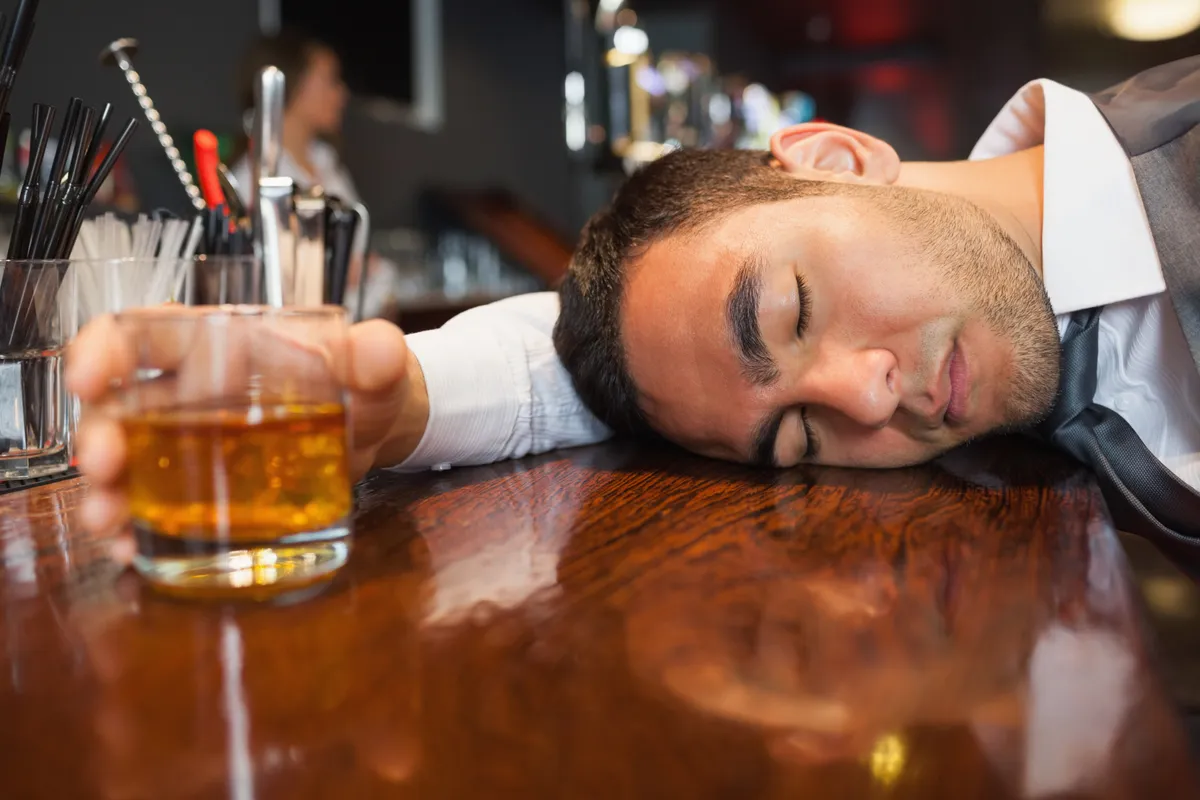With each sip of beer or wine, many people ask themselves – “When am I actually going to start feeling intoxicated?” As soon as your mouth tastes a drink containing ethanol or ethyl alcohol, your body processes its effects immediately, within ten minutes max. Although people may experience different sensitivities, initial impacts occur rapidly.
If you’re new to drinking alcohol, be aware that its effects set in rather quickly. You don’t need much time – usually only around ten minutes – before you’ll begin feeling tipsy or intoxicated after consuming beverages with higher alcohol levels.
Table of Contents
ToggleShould you eat first?
The debate over whether or not consuming food before drinking changes anything remains ongoing; however, there’s evidence that supports how having a meal before drinking slows down the rate at which one becomes intoxicated. The way you consume and react to alcoholic beverages can differ significantly depending on what’s already present in your digestive tract when you start drinking.
For example, if there’s no solid or semi-solid matter or any fatty substance inside your belly awaiting absorption into your system post alcohol consumption – the result of not having eaten beforehand – then all that ethanol swiftly flows right through and makes landfall within moments as dangerous toxins hit crucial organs with detrimental consequences! In contrast: consuming food ahead of boozing up acts as a preventative measure since it helps slow everything down!
If you consume alcohol on an empty stomach, it has a faster effect on your body due to the heightened intensity produced by this process. The highest point of blood alcohol concentration (BAC) occurs approximately sixty minutes following intake when no solid foods are consumed with liquor drinks.
Although different variables factor into this equation, such as gender and metabolism rates, among others, pre-drinking snacking seems like a good idea if one seeks prolonged enjoyment without losing control easily.
What are you drinking?
In addition, other elements also impact how fast alcoholic drinks take effect; these may encompass varying factors such as quantities drank or what spirits you choose to drink.
Champagne or whiskey soda’s carbonation implies that they enter your bloodstream faster, leading to early intoxication. On an empty stomach, drinks with 20-30% alcohol content are absorbed swiftly and result in prompt elevation of blood alcohol concentration. Based on this assertion, stronger spirits such as vodka are slower but faster than low-alcohol content drinks such as beer.
How much and for how long do you drink?

Keep in mind that there’s no set rule here! For instance, two non-drinking guys could each down six beers on a lazy weekend day; maybe one starts drinking because he feels too warm from doing yard work. He begins his afternoon with some much-needed rest before tackling the messy stack of firewood. It takes him a solid hour and a half to complete, but he comes back inside feeling fulfilled. After consuming multiple beers throughout the day, he can proudly say that he never felt a buzz. Meanwhile, his companion sits idly in front of the TV and chugs through six beers much quicker than anticipated until he’s heavily intoxicated.
The first individual gradually drank their beverage over several hours without getting drunk while the second person quickly consumed theirs, unable to be metabolized by their liver, leading them to become drunk.
The speed with which someone consumes alcoholic drinks plays an integral role in determining the rate at which they become intoxicated. Consuming all at once often leads to rapid effects and higher levels of blood-alcohol content compared with a slower pace, like sipping throughout the evening.
So, how swiftly somebody starts feeling drunk sometimes depends on two factors: the amount ingested together with ingestion speed.
Your brain chemicals play a role too
Alcohol consumption can cause many complex physiological changes in one’s mood, behavior, sensory perception, and coordination. These outcomes occur due to its interaction with neurotransmitters like Dopamine and Serotonin in one’s brain cells. Some people exhibit traits that make them vulnerable to getting hooked on drinking over time, whereas others maintain control over themselves when consuming moderate quantities occasionally.
There’s more… chemistry!
And let’s not forget about how even first-time drinkers might endanger themselves or others due to impaired cognitive function and lowered inhibitions after drinking. GABA receptors in the brain are responsible for why drinking alcoholic beverages can make you feel tipsy or drunk. When consumed, alcohol emulates GABA and creates a sense of relaxation throughout your body.
But after an extent of alcohol consumption, these receptors become less receptive because it influences them – this period can vary depending on how much was taken; however, even with an equal or greater level of blood alcohol concentration than before, doing so won’t achieve the expected “buzz.” If you resist alcohol for about a day, which refers to approximately 24-36 hours, then the GABA receptor sensitivity levels will return to their usual state or will be very close to it.
Are you a man or a woman?

This varies from person to person as everyone reacts differently due to various factors like tolerance levels influenced by genetics/environmental factors amongst other things.
Your fabulous female bodies go through so many changes each month during your menstrual cycles! One change that might surprise some people is how the absorption rate of alcohol varies throughout different phases.
Before menstruation and while ovulating specifically are the times when booze is absorbed more rapidly than usual. And then how long it sticks around depends also immeasurably from person to person!
It’s worth noting that there are gender differences with regards to BAC as well, regardless of weight or volume consumed between males and females; females typically experience a greater elevation when compared head-to-head under identical drinking circumstances as they possess less total body water for dilution purposes.
Do you have a smaller build?
However, if you’re unaccustomed or smaller, weighing less than a hundred and ten pounds, three drinks may be enough to bring about similar effects felt from more drinks. Those who don’t typically drink would also mistake getting used to related symptoms associated with having just taken one shot as being heavily drunk.
Once you have started drinking, you may start sensing its effects after consuming just three full pours worth. It usually takes much more than that to reach the state where you might be seen visibly swaying or staggered whilst walking from place A towards B.
What can you do to avoid getting drunk too fast?
First and foremost, don’t forget to enjoy a full meal for at least 60 minutes before throwing back any alcoholic beverages.
Secondly, make an effort to take your time when sipping on those cocktails or cold brews – avoid taking shots if possible! Thirdly, ensure you maintain adequate hydration by alternating between booze and non-alcoholic drinks (water being the healthiest option). Avoiding carbonated options is also greatly advised for maximum results.
And lastly but just as important – stay seated! Standing around while drinking has been shown to speed up intoxication rates rapidly.
Translation: if you love yourself or anyone else… probably stick with just one drink for every hour (or more) sobering being in between! Getting overly drunk in record time can easily be avoided by following these few key practices.
Be responsible in your drinking behavior
You hardly ever run into seasoned drinkers who can present themselves coherently and operate somewhat normally, except if those drinks were spread out over a few hours. Drinking responsibly is always important, but it’s especially crucial when it comes to operating heavy machinery like cars.
A small amount of alcohol can throw off your ability to drive safely – in fact, having just one shot could land you in deep legal trouble if the police pull you over on suspicion of drunk driving. Two shots are pretty much asking for police attention (and consequences), while three or more would almost certainly have disastrous consequences.

I am a passionate beer connoisseur with a deep appreciation for the art and science of brewing. With years of experience tasting and evaluating various beers, I love to share my opinions and insights with others and I am always eager to engage in lively discussions about my favorite beverage.
















